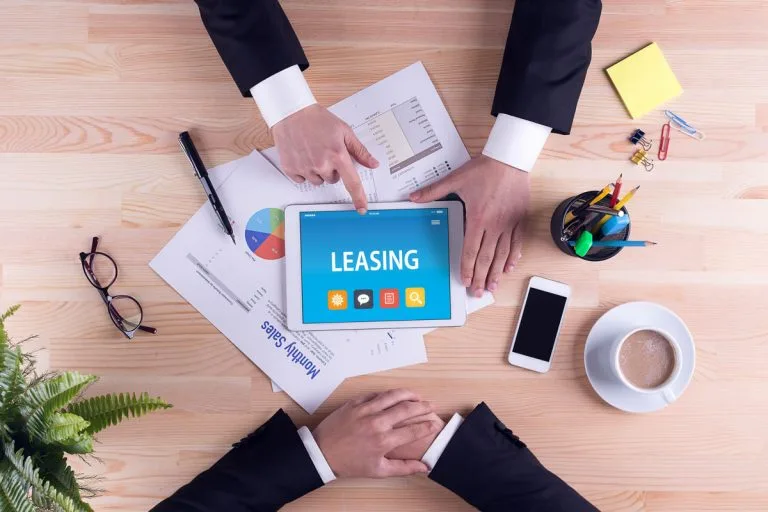Are you an entrepreneur looking to start a leasing company but don’t know where to begin? Starting any business can be daunting, and the world of leasing can seem complex and overwhelming. But fear not! I have been through the process myself and have learned valuable lessons along the way.
In this article, I will guide you step-by-step through the process of starting a leasing company. From understanding what exactly a leasing company is to creating a solid business plan, finding funding, marketing your services, and everything in between. By the end of this article, you will have all the tools and knowledge necessary to successfully launch your own leasing company. So let’s get started on this exciting journey together!
So, how to start a leasing company?
Starting a leasing company can be an exciting and lucrative venture for entrepreneurs. Leasing involves renting out assets such as equipment, vehicles, or property to individuals or businesses for a specific period of time in exchange for regular payments.
The first step in starting a leasing company is to determine what type of assets you want to lease. This could include anything from heavy machinery to office space. It’s important to research the market demand for your chosen asset and identify potential customers before moving forward with your business plan.
Next, you’ll need to develop a solid business plan that outlines your target market, financial projections, marketing strategies, and operational procedures. This will help guide your decisions and keep you on track as you launch your company.
One crucial aspect of starting a leasing company is securing funding. Depending on the size and scope of your business, this may involve obtaining loans from banks or seeking investments from outside sources. It’s important to have a clear understanding of how much capital you’ll need and how it will be used.
Once you have secured funding, it’s time to establish legal structures for your business such as registering with the appropriate government agencies and obtaining necessary licenses and permits. You may also want to consult with legal professionals who can advise you on any contracts or agreements needed for leasing out assets.
Marketing is another key component in starting a successful leasing company. Utilize various channels such as social media, networking events, trade shows, and advertising platforms to reach potential clients. Highlight the benefits of leasing over purchasing assets outright – such as lower upfront costs – in order to attract customers.
Finally, make sure that all aspects of operations are running smoothly before officially launching your business. This includes having proper systems in place for tracking inventory/leases, managing finances/accounts receivable/payable processes efficiently, and ensuring customer satisfaction through excellent service.
In conclusion, startups require dedication, time, and effort, but if done correctly, a leasing company has great potential for success. With a solid business plan, proper funding, and effective marketing strategies, you can build a thriving leasing company that meets the needs of clients and generates steady revenue.
Understanding the Basics: What is a Leasing Company?
A leasing company is a specialized business that provides leases for various assets, such as vehicles, equipment, and real estate. Essentially, it allows individuals or businesses to use something without purchasing it outright. Imagine wanting to drive a shiny new car for a few years; instead of buying one and paying the full price upfront, you can simply lease it. You make monthly payments that cover the car’s depreciation during your lease period. When the lease ends, you return the vehicle and may even have options to buy it at an agreed-upon price or get another model.
Leasing companies work with many different sectors. For instance, they help businesses acquire expensive machinery without straining their budgets by spreading out costs over time. They often offer flexible terms tailored to clients’ needs—like varying payment lengths and mileage limits for cars or maintenance packages for heavy equipment. This flexibility makes leasing appealing because companies can adapt quickly as their needs change. In short, leasing companies create opportunities by providing access rather than ownership, making them vital players in today’s economy where innovation and adaptability are key.
As a result of this approach, many people find themselves enjoying high-quality items while freeing up cash flow for other investments or needs.
Creating a Solid Business Plan for Your Leasing Company
When starting a leasing company, having a solid business plan is like building a strong foundation for your dream home. A well-crafted plan outlines your goals and strategies, guiding you through challenges as you grow. Begin by clearly defining your target market. Are you focusing on equipment leasing for small businesses or residential properties? Knowing this helps sharpen your focus. Include an analysis of competitors; understanding their strengths and weaknesses will help you position yourself in the market effectively. Additionally, outline the services you’ll provide, whether it’s short-term leases or long-term agreements, and explain how these offerings meet customer needs.
Next up is financial planning—this part can’t be overlooked! Create detailed projections that include startup costs and expected revenue streams; this offers insight into your company’s potential profitability. Consider financing options: will you seek investors or take out loans? It’s also smart to analyze risks involved with leasing assets since unexpected situations can arise easily in any industry. Don’t forget about marketing strategies! Highlight how you’ll reach clients through social media campaigns or community events to build name recognition.
By covering these aspects thoroughly, you’ll establish not just a roadmap but also a blueprint for success that keeps evolving with the times.
Read also: used engines houston texas

Finding Funding to Start Your Leasing Company
Starting a leasing company can be an exciting venture, but finding the right funding is crucial for turning your dream into reality. It’s important to consider various options that can provide the necessary capital. One popular method is seeking out traditional bank loans, which often have lower interest rates compared to other financing sources. However, securing these loans usually requires a solid business plan and good credit history. Additionally, you might want to explore alternative lenders or online platforms that cater specifically to small businesses and entrepreneurs. These avenues may offer quicker approvals and more flexible terms.
Another effective approach is gathering funds through investors who believe in your vision. You could pitch your idea at local startup events or networking meet-ups where potential backers are eager to support promising projects. If you’re comfortable with it, crowdfunding has gained popularity as well; platforms like Kickstarter allow you to present your leasing concept directly to the public, inviting contributions from those who resonate with your mission.
Furthermore, don’t overlook government grants designed for small enterprises—they can provide essential financial support without requiring repayment.
Each of these funding methods opens new doors while helping you build a strong foundation for success in the leasing industry!
Marketing Strategies for Promoting your Leasing Services
In today’s competitive landscape, effective marketing strategies are essential for promoting leasing services and attracting potential clients. One of the most powerful tools is digital marketing. By leveraging social media platforms like Facebook, Instagram, or LinkedIn, businesses can engage with a broader audience. Eye-catching visuals, paired with compelling narratives about available properties or benefits of leasing, can significantly boost interest. Additionally, maintaining an informative blog on your website that discusses market trends and provides tips for tenants fosters trust and establishes your company as a knowledgeable leader in the field.
Another impactful strategy involves community engagement. Hosting local events or workshops not only raises awareness but also creates genuine connections with potential clients. Consider organizing property tours or informational sessions to showcase what you offer directly. Furthermore, developing partnerships with local businesses can amplify your reach; think about creating referral programs that reward those who send new clients your way. An email newsletter featuring exclusive offers and updates keeps your audience informed while establishing ongoing communication.
To maximize effectiveness, analyze metrics from various campaigns to see which methods yield the best results overall—this allows for continual improvement of your approach!
You may also like: IBM joint venture partners
Tips and Best Practices for Running a Successful Leasing Company
Running a successful leasing company requires more than just having properties to rent; it’s all about building strong relationships and maintaining a clear understanding of market dynamics. First, focus on excellent communication. Keeping an open dialogue with your clients is essential. Whether it’s through regular updates or responding promptly to queries, this practice fosters trust and loyalty. Utilize digital tools like property management software for efficient organization and better tracking of applications. This not only streamlines operations but also enhances customer satisfaction by providing them easy access to their rental information.
Additionally, staying informed about local trends can give your business a competitive edge. Research neighborhood developments, school ratings, and community amenities that potential renters value most. Consider creating informative content—like blog posts or newsletters—that showcases these insights while positioning your company as an expert in the field.
Moreover, embracing flexibility in lease terms can attract a wider range of clients while demonstrating adaptability to changing needs. Offering options such as short-term leases alongside traditional ones caters to various lifestyles.
- Be proactive in maintenance
- Consider eco-friendly practices
- Pursue continuous education in real estate laws
This comprehensive approach ensures that you create lasting partnerships with both tenants and property owners alike!

